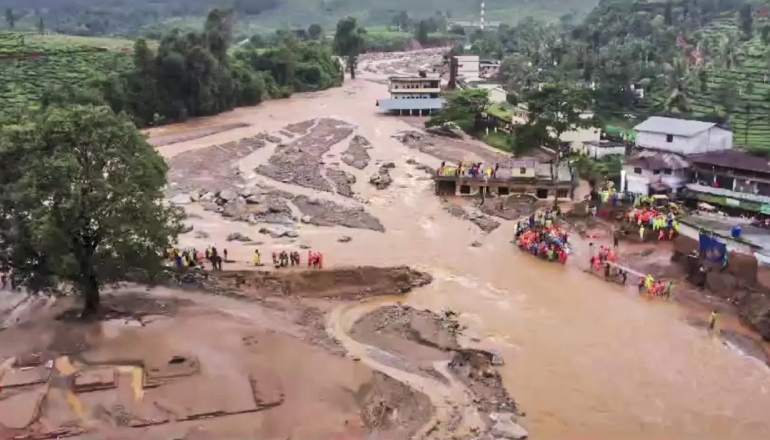Corporate Social Responsibility (CSR) spending on skill development must rise sharply if India is to realize its potential as a global talent powerhouse, according to a new report by CRISIL Intelligence titled India’s Got Talent.
Global Opportunity Amidst Skill Shortages
With 65% of India’s population under the age of 35, the nation stands at a demographic crossroads. As developed economies across the Gulf Cooperation Council, Europe, and Australia grapple with acute skill shortages—particularly in healthcare, information and communication technology (ICT), renewable energy, logistics, and construction—India is uniquely positioned to bridge these gaps with its abundant young workforce.
A recent FICCI-KPMG study estimates that by 2030, the global shortage of skilled workers could exceed 85 million, potentially resulting in $8.45 trillion in unrealized annual revenue worldwide. Europe alone is projected to need more than 2 million technology professionals by 2030, while the healthcare sector faces a 1.6 million worker shortfall.
CSR Investment: The Missing Link
Despite this opportunity, the CRISIL report highlights a critical gap: of the ₹2.22 lakh crore spent by Indian corporates on CSR since fiscal 2015, only 3.5% has been directed towards skilling initiatives. Most CSR skilling projects have been fragmented and focused on conventional or informal trades, often disconnected from the evolving demands of the global employment ecosystem.
“CSR investments must evolve beyond isolated skilling activities. When strategically integrated with government initiatives, CSR has immense potential to act as an enabler, significantly strengthening India’s global workforce readiness. Our analysis highlights that, to effectively harness its potential, CSR must strategically identify and prioritise skills in a phased manner,” said Binaifer Jehani, Business Head, Risk Solutions – Assessments & Social Sector Consulting, CRISIL Intelligence.
A Phased Approach to Skilling
The report recommends a three-phase strategy for CSR investment in skilling:
Short Term (1–2 years):
Focus on scalable sectors such as caregiving, construction, logistics, and truck driving. These areas already have domestic training capabilities but need international standardization, migration-readiness training, and targeted language and cultural orientation.
Medium Term (2–5 years):
Deepen collaboration and invest in high-demand sectors like ICT, cybersecurity, renewable energy, artificial intelligence, hospitality, and tourism.
Long Term (5–10 years):
Establish future-oriented skill ecosystems in partnership with government and industry. This includes curriculum transformation and investment in advanced sectors such as robotics, blockchain, precision manufacturing, and healthcare.
The Role of Infrastructure and Collaboration
The report strongly advocates for CSR support in building robust training infrastructure, including smart labs, simulators, and language and cultural labs to ensure international employability. Sectoral coalitions, such as automotive companies jointly funding global-standard electric vehicle technician training, are highlighted as models for impactful, scalable skilling.
“Sectoral coalitions led by CSR investments can significantly amplify skilling outcomes. Collaborative industry efforts, such as automotive companies coming together to support international standard technician training for electric vehicles, demonstrate the power of focused and aligned CSR contributions and can bridge skill gaps at scale,” said Monika Pattnaik, Associate Director, Risk Solutions – Social Sector Consulting, CRISIL Intelligence.
The Demographic Dividend
India’s demographic advantage is time-sensitive. The working-age population (15–64 years) is expected to remain high until 2050, but the window to harness this dividend is narrowing. Strategic alignment between CSR, government initiatives, and industry needs is essential to ensure India’s workforce becomes globally competitive, resilient, and future-ready.
Real-Time Data and Policy Alignment
The report calls for real-time demand mapping and comprehensive data dashboards to monitor and forecast global and domestic skill shortages. Integrating these platforms into national frameworks will ensure skilling interventions remain timely, demand-driven, and outcome-oriented.
Government and Industry Response
Government initiatives like the Pradhan Mantri Kaushal Vikas Yojana have made strides in skilling, but experts agree that both public and private sectors must scale up investments and coordination to meet global demand. India already sends about 700,000 workers abroad each year, and with the right skilling push, this number could rise to 2.5 million annually, potentially adding $300 billion to the economy through remittances.
As the global skills gap widens, India’s ability to strategically leverage CSR spending on skilling will be crucial to unlocking its workforce potential and cementing its place as a leading supplier of talent to the world.













